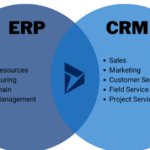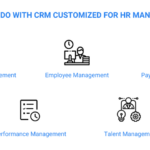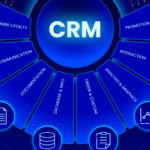The best-functioning CRM software is the one with the highest user adoption. The better the platform performs essential functions and yields measurable data-driven returns, the more your people are willing to input data. In a perfect world, this would enable employees in the company to perform better, engage customers more closely and thus input more data-a positive feedback loop that exists mostly in the dreams of CRM administrators.
Most CRM software has similar basic functions but there is no one-size-fits-all platform. Providers as a whole strive to mix form and function to accommodate the individual employees ‘ needs to impose personal workflows on their day and the desire of a company for uniform systems that better track performance, boost productivity and assure consistency in customer engagement.
Here are the six CRM Integrations which you must have
- Email Integration – Email functionality is a necessary CRM integration that most solutions include built into their platforms. Companies generally prefer employees to engage clients from a company-specific email address for branding purposes. CRM Software for businesses navigates around this by providing CRM-specific addresses to which employees can forward email correspondence to update the CRM logs without sacrificing their company identity.
- Phone Integration – Companies that spend time calling customers – typically sales calls – will find phone integration highly useful. The call button is available wherever contact info is listed in the CRM, eliminating the need to switch between apps or dial numbers. Some providers allow unlimited calling and others charge tariffs per minute so consider your budget and calling needs before making a decision.
- Calendar Integration – Often CRMs allow scheduling appointments, task management, and event management, all of which benefit from an integrated calendar. Forcing a choice between the preferred calendar app for employees and the CRM frustrates users so that many CRMs incorporate popular workplace calendars.
- Marketing Automation Integration-CRM Business Software is far more than contact management tools and sales force tools-it also reduces the barriers between sales and marketing departments. The platform is aimed at small businesses that generally lack dedicated sales and marketing departments.
- Social Media Integration – Tools and metrics used for tracking customer engagement over traditional channels can be applied to social media. This allows companies to track trends and mentions on platforms such as Facebook, Instagram, Twitter and others, which in turn allows for more detailed customer segmentation, real-time response to immediate customer needs, more reliable social advertising and the ability to generate nuanced KPI reports indicating marketing outreach performance and customer sentiment.
- Mobile Integration – Making key features of a CRM available on a mobile platform is essential for a workforce that’s increasingly on the go. If your workers use their phones to update account details, compare reports of CRM’s mobile apps— some companies are attempting to replicate their browser-based interface that produces a complex user experience.
CRM integrations can streamline workflows and reduce redundancy between applications, creating greater effectiveness while delivering consistent, seamless user experience.






0 Comments